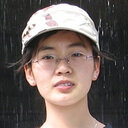Anticancer activity of litchi fruit pericarp extract against human breast cancer in vitro and in vivo.
Λέξεις-κλειδιά
Αφηρημένη
Litchi fruit pericarp (LFP) extract contains significant amounts of polyphenolic compounds and exhibits powerful antioxidative activity against fat oxidation in vitro. The purpose of this study is to confirm the anticancer activity of LFP extract on human breast cancer in vitro and in vivo, and to elucidate the mechanism of its activity. Human breast cancer cells were tested in vitro for cytotoxicity, colony formation inhibition, BrdU incorporation, and gene expression profiling after treatment with LFP extract. Seven nude mice bearing human breast infiltrating duct carcinoma orthotopically were tested for its anticancer activity and expression of caspase-3 in vivo by oral administration of 0.3% (0.3 mg/ml) of LFP water-soluble crude ethanolic extract (CEE) for 10 weeks. LFP extract demonstrated a dose- and time-dependent inhibitory effect on cell growth (IC(50) = 80 microg/ml), and it significantly inhibited colony formation and BrdU incorporation of human breast cancer cells. Oligonucleotide microarray analysis identified 41(1.22%) up-regulated and 129 (3.84%) down-regulated genes after LFP water-soluble CEE treatment; the predominantly up-regulated genes were involved in various biological functions including cell cycle regulation and cell proliferation, apoptosis, signal transduction and transcriptional regulation, and extracellular matrix/adhesion molecules; and down-regulated genes were mainly associated with adhesion, invasion, and malignancy of cancer cells. A 40.70% tumor mass volume reduction and significant increase of casepase-3 protein expression were observed in vivo experiment. The findings in this study suggested that LFP extract might have potential anticancer activity on both ER positive and negative breast cancers, which could be attributed, in part, to its DNA damage effect, proliferating inhibition and apoptosis induction of cancer cells through up-regulation and down-regulation of multiple genes involved in cell cycle regulation and cell proliferation, apoptosis, signal transduction and transcriptional regulation, motility and invasiveness of cancer cells; ADP-ribosyltransferase (NAD+; poly (ADP-ribose) polymerase)-like 1 (ADPRTL1), Cytochrome P450, subfamily I (CYP1A1) and Hyaluronan-mediated motility receptor (HMMR) might be the main molecular targets at which LFP water-soluble CEE acted.




